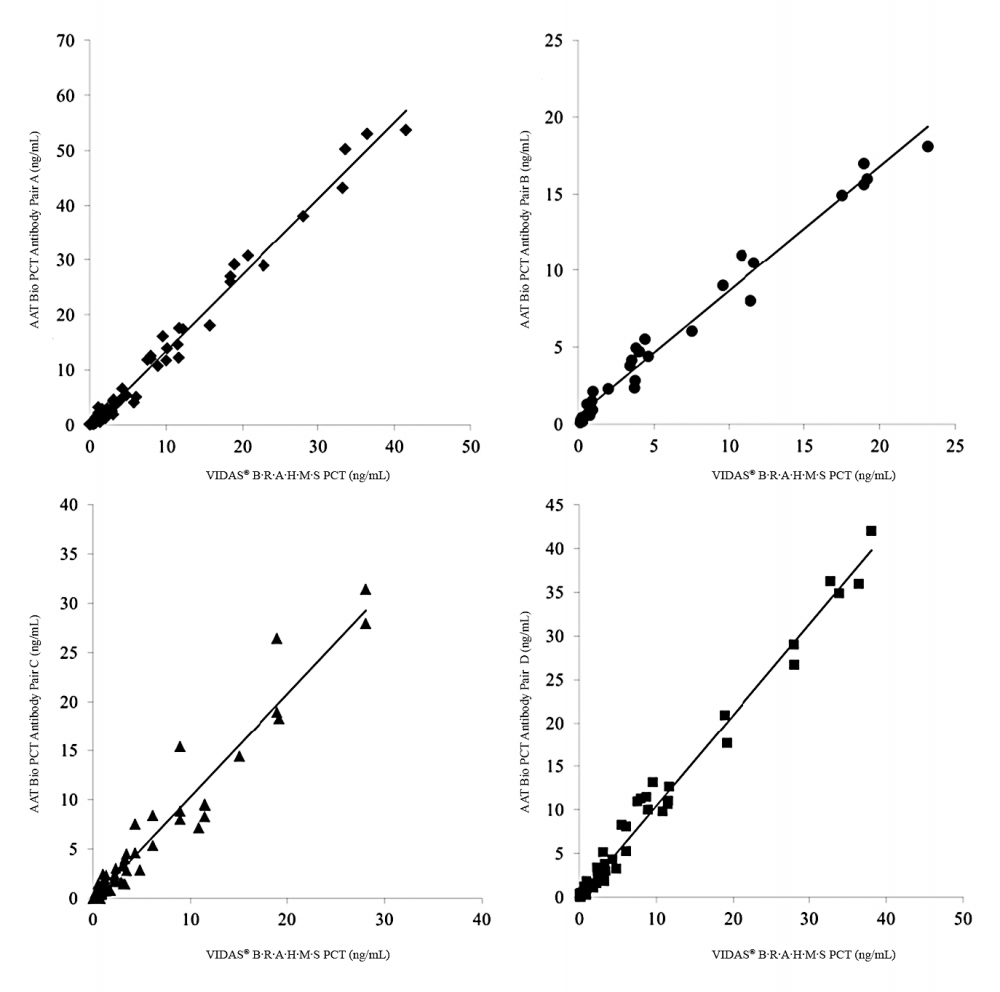Anti-Procalcitonin (PCT) antibody
Mouse anti-human, monoclonal IgG1
Procalcitonin (PCT) is a peptide precursor of calcitonin and is composed of 116 amino acids. It is produced by the C cells of the thyroid and by the neuroendocrine cells of the lung and the intestine. Under normal conditions, the level of PCT in the blood of healthy individuals is very low (< .05 ng/mL) with a half-life of 25 to 30 hours in serum. In response to a pro-inflammatory stimulus, such as a pathogen, the level of PCT may increase as high as 100 µg/mL making it a suitable biomarker of bacterial infection. In clinical biology, PCT has shown to be a useful tool in the diagnosis of sepsis. Anti-PCT monoclonal antibodies are highly specific for the detection of human procalcitonin. They can be used for a broad range of immunoassays such as chemiluminescent immunoassays (CLIA).


| Catalog | Size | Price | Quantity |
|---|---|---|---|
| V100120 | 50 ug | Price | |
| V100121 | 1 mg | Price |
Physical properties
| Solvent | Water |
Antibody properties
| Host | Mouse |
| Reactivity | Human |
| Application | ELISA, CLIA |
Storage, safety and handling
| Intended use | Research Use Only (RUO) |
| Storage | Freeze (< -15 °C) |
Contact us
| Telephone | |
| Fax | |
| sales@aatbio.com | |
| International | See distributors |
| Bulk request | Inquire |
| Custom size | Inquire |
| Technical Support | Contact us |
| Request quotation | Request |
| Purchase order | Send to sales@aatbio.com |
| Shipping | Standard overnight for United States, inquire for international |
Page updated on January 30, 2026
